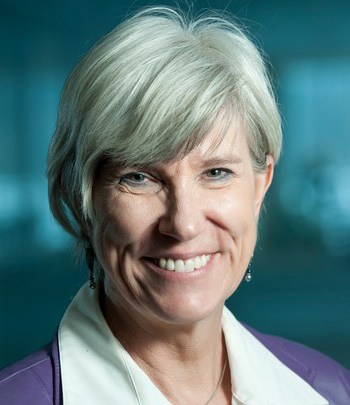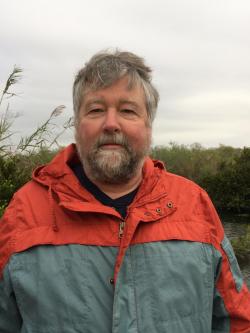Weekly Update (08/19/2024)
ESPP News and Announcements
ESPP invites abstract submissions from undergraduate students, graduate students, and post-doctoral scholars at MSU for the upcoming ESPP Fall Student Research Symposium. This event, scheduled for Friday, October 11, 2024, from 8:30 AM to 2:00 PM in the Lincoln Room at the Kellogg Center, aims to bring together researchers from various disciplines to address pressing issues at the intersection of environmental science and policy.
-
MSU water expert honored for career protecting public health

Michigan State University water microbiologist Joan Rose, an ESPP affiliated faculty member, was honored for her lifetime of water research with the International Water Association Global Water Award. She was recognized Aug. 10 at the IWA World Water Conference in Toronto, Canada.
-
MSU University Distinguished Professor of Sociology elected to the National Academy of Sciences

Dr. Tom Dietz, the founding Director of ESPP, who retired last year as a University Distinguished Professor of Sociology, was elected to the esteemed National Academy of Sciences this week.Dietz was one of only 120 members and 24 international members elected to NAS in recognition of their distinguished and continuing achievements in original research.
Upcoming ESPP Events
Please mark your calendar for the upcoming ESPP events. More details will follow.
- August 24, 2024: Graduate School Welcoming and Resource Fair
- August 27, 2024: Social Hour
- September 20, 2024: Faculty Forum
- October 9, 2024: Dr. Robert D. Bullard’s talk on Environmental Justice
- October 11, 2024: ESPP Fall Student Research Symposium
- October 14-15, 2024: ESPP Distinguished Lecture Series, Dr. Gary Machlis
- November 15, 2024: Faculty Forum
Course Announcements
-
FSC 843: Exposure Science and Epidemiology | Dr. Courtney Carignan
This is a 3-credit course that meets 2 classes per week on M/W, 12:30 – 2:20 pm, Anthony Hall 1255; Virtual accommodations can be made for students not at the East Lansing campus.
Course Description:
- Learn about exposures across the life course.
- Understand and interpret exposure and epidemiology literature.
- Learn and apply methods to quantify exposure to nutrients and contaminants in food, water, products and the environment.
- Learn basic concepts in epidemiology to quantify associations of exposures with health outcomes.
This is a graduate level course. A background in basic sciences is recommended. The course format will be brief lectures, reading assignments, student presentations and class discussion. Each student selects one exposure (e.g., nutrient, contaminant) to center their assignments, midterm and final presentations. Students develop and conduct an exposure assessment as well as propose and design an epidemiology study.
-
ENE 828: Land Surface Hydrological Modeling | Dr. Yadu Pokhrel
This course deals with the theoretical and technical aspects of large-scale hydrological modeling. A particular emphasis is placed on fully distributed process-based models that resolve complex governing equations of vegetation, soil, river, and groundwater processes considering both water and energy balance on the land surface. Topics covered will range from general concepts in physical hydrology (e.g., runoff, evapotranspiration, groundwater flow) to more advanced topics including solving complex governing equations of energy and water balance used in the state-of-the-art land surface models (LSMs). We will discuss the advances made in LSM development to improve the parameterizations of various soil and vegetation processes, as well as the emerging trends in large-scale hydrological modeling, especially to represent the human-induced alteration of the land water cycle (e.g., land cover change, reservoir regulation, irrigation, groundwater pumping) and the potential impacts on regional/global climate system. The course builds upon the concepts covered in the undergraduate hydrology courses such as ENE421. At the end of the course, students are expected to be able to build their own schemes to simulate some of the importance hydrologic processes and conduct large-scale hydrological simulations using land surface models such as the Community Land Model (CLM).
-
AFRE/CSUS/FW/FOR 829: Econmoics of Environmental Resources | Dr. Satish Joshi
This is a Masters level economics course that covers economic principles, theoretical models, and empirical methods related to environmental problems and policy interventions, and applications to air, land, water, forests, energy, fish and wildlife, and climate change. As a cross-listed course, it is designed to be accessible and interesting to a wide range of students, by covering the essential theory in class, but discussing advanced articles that reflect the state of the art.
The goals of the course are to enable students to:
- Apply core concepts of economic theory to the analysis of environmental and resource problems
- Understand how market failures lead to the degradation of environmental resources
- Understand the role of legal, cultural, and market institutions in environmental management
- Assess the economic and practical tradeoffs in designing effective environmental regulations
- Understand, apply, and evaluate methods for assigning economic values to environmental resources
- Understand key tradeoffs involved in managing exhaustible and renewable resources over time
- Become a more skilled user and/or producer of applied economics research
The course will be very useful for graduate students in CSUS, FOR and FW. AFRE 829 can also be used to fulfill part of the requirements for the ESPP dual doctoral major, and it is a required course for the graduate specialization in Environmental Policy.
Seminars, Workshops, and Other Events
-
MSU Health Equity Symposium Preview | 1:30 - 2 PM, August 22, 2024 | Virtual
This symposium, being held on October 25, aims to bring together researchers from MSU, MSU Extension, and partners with Henry Ford Health to advance transdisciplinary research projects and drive positive change in health equity research.
This preview session will help prospective attendees learn about the goals and expectations as the agenda is discussed for this working symposium. The second half of this preview event will feature a panel discussion on the importance of community-engaged and health disparity research, followed by time for Q&A.
-
Communicating Science Conference - MI 2024 | October 26-27, 2024
ComSciCon-MI is a free workshop focused on science communication. This event is tailored specifically for graduate students and postdocs in Michigan and neighboring regions. The program features panel sessions with approximately 20 invited professional science communicators, writing sessions to hone participants’ skills, peer and expert review of writing, and a pop talk contest where participants showcase their science outreach projects and forge new collaborations.
Scholarships, Fellowships, and Funding Opportunities
-
The application for the 2025 Christine Mirzayan Science and Technology Policy Graduate Fellowship Program is now open! We are seeking current graduate students or recent graduates who are interested in exploring career options in science policy. A typical candidate is in the final years of their PhD program or has defended their thesis within the past five years, and is excited to spend time in D.C., learn about science policy, and network with science and technology policy experts. This year’s Fellowship will run from March 3 - May 23, 2025.
-
The Office of Research and Innovation is pleased to announce our faculty research support funding programs for the 2024-2025 academic year. Through the generosity of the MSU Research Foundation, with additional funds from Colleges and the Office of Research and Innovation, we are able to support three funding programs:
-
Discretionary Funding Initiative – Submissions due September 12, 2024
-
Humanities and Arts Research Program
-
Production - Submissions due September 12, 2024
-
Development - Submissions due October 3, 2024
-
Large-Scale Projects - Submissions due October 3, 2024
-
-
Strategic Partnership Grants - Submissions due September 13, 2024 - Research and Scholarly Development - Center Development
-
Jobs and Training Opportunities
-
Graduate Assistant - Office of the Board of Trustees | Application Deadline: August 26, 2024
The Office of the Board of Trustees is seeking a half-time Graduate Assistant for academic year 2024-2025. This position will provide essential support to the Secretary and Chief of Staff to the Board of Trustees in policy review, analysis, and development, as well as support special projects and initiatives.
-
Exposure Science Postdoc Researcher
A Postdoctoral Researcher position is open in the research group of Dr. Courtney Carignan at Michigan State University. This position offers the opportunity to work with a dedicated mentor in a supportive research environment to train in exposure science and pursue career development activities. The position requires a highly motivated scientist to develop and test dietary exposure models for a wide range of contaminants. The ideal candidate will have a graduate degree in environmental health, environmental science, nutritional science, food science (or related field) and experience with exposure modeling. To apply, please submit application materials to MSU job posting 937847: https://careers.msu.edu/en-us/job/518084/research-associatefixed-term.


